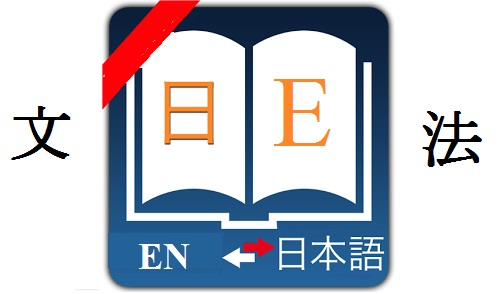Japanese ておく/とく grammar teoku/ toku

Let’s learn Japanese ておく/とく grammar teoku/ toku :
Contents
Japanese ておく/とく grammar teoku/ toku
JLPT level : N4
Formation :
Vておく
Japanese ておく/とく grammar teoku/ toku
Usage
Vておく
Meaning : Describe the meaning “doing something that maintains its results.”
Note : This structure is easily confused with「てある」
「てある」describes the results of something which has been prepared.
「ておく」describes the preparation for something.
Example :
1. 今日の晩、俺の家でパーティーがありますから、食べ物を作っておきます。
Kyou no ban, ore no ie de pa-ti- ga arimasu kara, tabemono wo tsukutte okimasu.
I have a party at my house tonight, so I’ll make food beforehand.
2. 今週末一人旅行で北海道に行きますから、準備しておきます。
Konshuu matsu hitori ryokou de hokkaidou ni ikimasu kara, junbi shite okimasu.
I will travel to Hokkaido this weekend alone, so I’ll prepare for it beforehand.
3. 来年日本に留学すると決めたので、日本語を習っておく必要がある。
Rainen nihon ni ryuugaku suru to kimeta node, nihongo wo naratte oku hitsuyou ga aru.
I decided to study abroad in Japan next year, so I need to learn Japanese beforehand.
4. 論文を書く前に、参考書や資料などを集めておく。
Ronbun wo kaku mae ni, sankou sho ya shiryou nado wo atsumete oku.
Before writing essay, I will collect reference books and materials beforehand.
5. 明日お客が訪問するので、今日家を片付いておく。
Ashita okyaku ga houmon suru node, kyou ie wo katadukete oku.
A customer will visit tomorrow, so today I will clean the house beforehand.
6. 息子の友だちは午後来るので、クッキーを焼いておく。
Musuko no tomodachi ha gogo kuru node, kukkii wo yaite oku.
My son’s friend will come in the afternoon, so I will bake some cookies beforehand.
7. A「今試験のための勉強をしてる?まだ1月間があるのに…」
B「いえ、さっきに勉強しておいたほうがいいと思います。」
A : “Ima shiken no tame no benkyou wo shiteru? Mada ichi gatsu kan ga aru noni…”
B : “Ie, sakki ni benkyou shite oita hou ga ii to omoimasu.”
A : “Are you studying for the exam now? There is still one month left….”
B : “No, I think we should study beforehand.”
8. A「会議は午後5時に始まるので、書類は4時前に済ませておいてください。」
B「はい、わかりました。」
A : “Kaigi ha gogo goji ni hajimaru node, shorui ha yonji maeni sumasete oite kudasai.”
B : “Hai, wakari mashita.”
A : “The meeting will start at 5 pm, so be sure to complete the documents before 4 pm.”
B : “Yes, I got it.”
9. 海外旅行をする時、外国語がわからないので、前にホテルやサービスを全部予約しておくべきだ。
Kaigai ryokou wo suru toki, gaikooku go ga wakaranai node, mae ni hoteru ya sa-bisu wo zenbu yoyaku shite oku beki da.
When traveling abroad, because I don’t know foreign languages, I must book all hotels and services beforehand.
10. 日本語能力試験に合格するために、習ったことを全部復習しておきます。
Nihongo nouryoku shiken ni goukaku suru tame ni, naratta koto wo zenbu fukushuu shite oki masu.
In order to pass the Japanese Language Proficiency Test, I will review all the things that I have learned.
11. 後に来る人が多いので、ドアを開けておいてください。
Ato ni kuru hito ga ooi node, doa wo akete oite kudasai.
Many people will come later, <span style=”background-color: yellow;”>so please leave the door open.</span>
12. 会社のプロジェクトのために、人材を集めておくべきだ。
Kaisha no purojekuto no tameni, jinzai wo atsumete oku beki da.
Human resources must be gathered beforehand for company projects.
13. 天気が寒くなるかもしれないので、コートを持っていっておく。
Tenki ga samaku naru kamo shirenai node,ko-towo motte itte oku.
The weather may get cold, so I will bring a coat.
Japanese ておく/とく grammar teoku/ toku
14. A「最近風邪を引く人が多いので、念のために薬を飲んでおきましょう。」
B「はい、すぐ飲みます。」
A : “Saikin kaze wo hiku hito ga ooi node, nen no tame ni kusuri wo nonde oki mashou.”
B : “Hai, sugu nomi masu.”
A : “There are many people who catch a cold recently, so let’s take medicine just in case.”
B : “Yes, I’ll drink it right away.”
15. 娘が早く鍵を見つけるためにノートを残しておきます。
Musume ga hayaku kagi wo mitsukeru tameni no-to wo nokoshite oki masu.
I will leave a note for my daughter to help her find the key quickly.
16. 田中さんにさっきに電話しておいたほうがいいと思います。
Tanaka san ni sakki ni denwa shite oita hou ga ii to omoimasu.
I think we should call Mr. Tanaka a while ago.
17. 上司にプランを提案する前に、会社の実況や経済状況などを調べておく必要がある。
Joushi ni puran wo teian suru mae ni, kaisha no jikkyou ya keizai jouhou nado wo shirabete oku hitsuyou ga aru.
Before proposing a plan to your boss, you need to investigate the actual situation and economic situation of the company.
18. 果物を食べる前に、ちゃんと皮を剥いておきましょう。
Kudamono wo taberu mae ni, chanto kawa wo muite oki mashou.
Before eating fruits, let’s peel off their skin properly.
19. A「今日の午後会議があるが、皆にどんなに報告すればいいかわからない…。」
B「全社員をメールで送っておいたほうがいいよ。」
A : “Kyou no gogo kaigi ga aru ga, mina ni donna ni houkoku sureba ii ka wakaranai…”
B : “Zenshain wo me-ru de okutte oita hou ga ii yo.”
A : “There is a meeting this afternoon, but I don’t know how should I report it to everyone…”
B : “You should send email to all employees beforehand.”
20. 今日彼氏とデートするので、メークアップしておきます。
Kyou kareshi to de-to suru node, me-ku appu shite oki masu.
I’m going to go on a date with my boyfriend today, so I put on makeup beforehand.
21. 来週の英語テストのために新しい言葉を暗記しておきます。
Raishuu no eigo tesuto no tame ni atarashii kotoba wo anki shite oki masu.
I memorize new words for the English test next week.
22. 明日仕事の面接があるので、服装や面接の答えを準備しておきます。
Ashita shigoto no mensetsu ga aru node, fukusou ya mensetsu no kotae wo junbi shite oki masu.
I have a job interview tomorrow, so I will prepare my clothes and interview answers beforehand.
23. 後30分に出かけるので、汚い服を洗っておきます。
Ato sanjuufun ni dekakeru node, kitanai fuku wo aratte oki masu.
I will go out 30 minutes later, so I will wash my dirty clothes.
24. 週末彼女と一緒に映画を見に行きますから、チケットを買っておきます。
Shuumatsu kanojo to issho ni euga wo mi ni ikimasu kara, chiketto wo katte oki masu.
I’m going to watch a movie with my girlfriend on weekends, so I will buy tickets beforehand.
25. 相談は長引きそうなので、母はご飯をさっきに食べろと電話をしておきます。
Soudan ha nagabiki sou na node, haha ha gohan wo sakki ni tabero to denwa wo shite oki masu.
The consultation seems to be prolonged, so I will call my mother to tell her to eat first.
26. 荷物をそこに置いておきます。
Nimotsu wo soko ni oite oki masu.
I put my luggage there beforehand.
Ref : tuhoconline
above is Japanese ておく/とく grammar teoku/ toku. if you don’t understand the signs we used in fomation, you can find their meaning here : signs used in Japanese grammar structures.
You can search the structure you want by using the search tool on our website (using key : grammar + ‘structure name’ or you can find more Japanese grammar structures in the following category : Japanese grammar dictionary

in 5th example ashuta instead of ashita